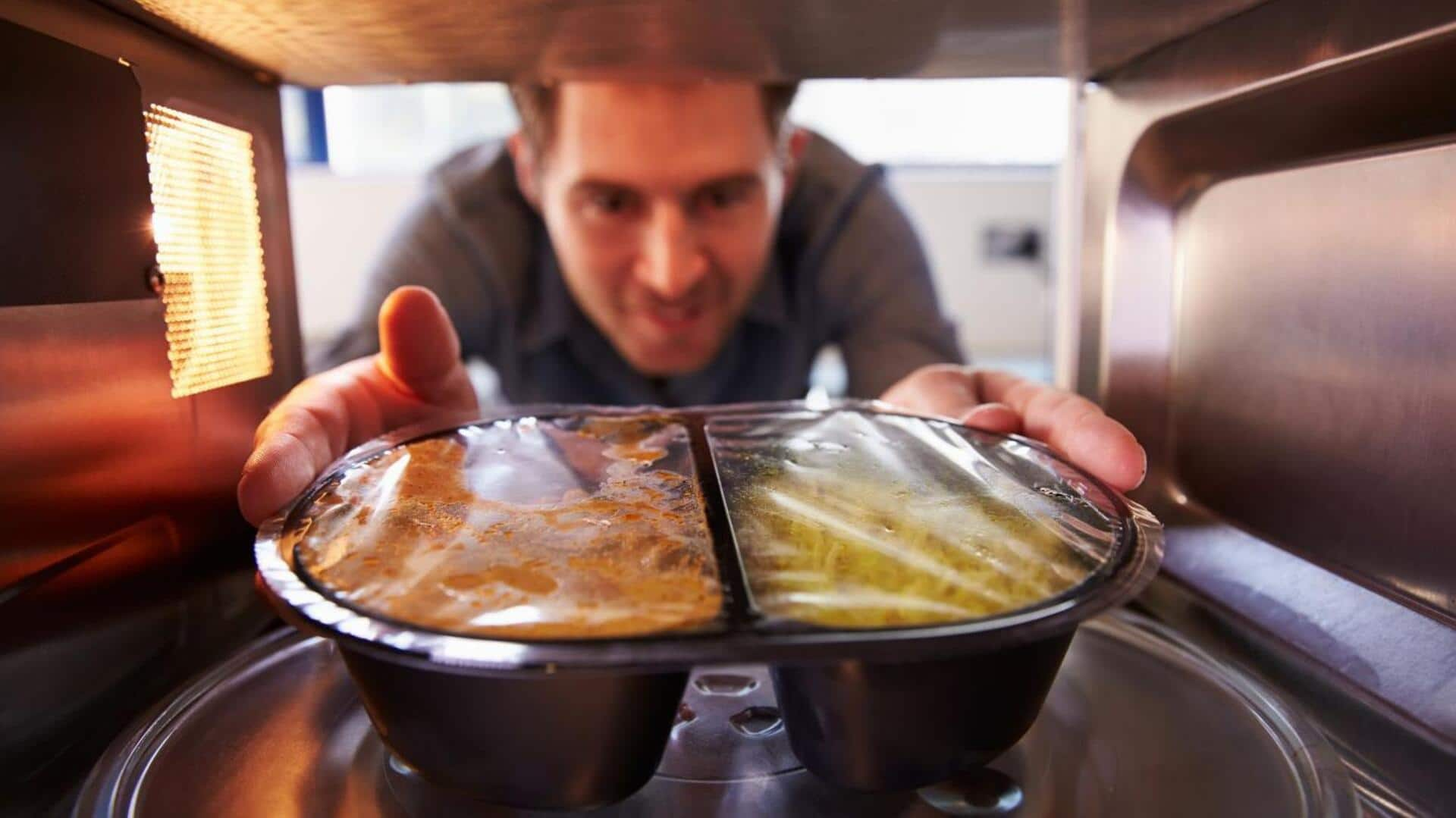
Microwaves and nutrient myths debunked
What's the story
Kitchen microwaves confront myths about zapping away food's nutrients. This article serves up a hearty helping of truth, backed by science and seasoned with expert insights. Microwaving, surprisingly, locks in nutrients better than some conventional cooking methods. By understanding the science of how microwaves heat our food, we can embrace their convenience without fearing nutrient loss. Say goodbye to myths and hello to facts (and a balanced diet)!
Myth 1
Microwaving does not destroy nutrients
Does microwaving zap away nutrients? No, that's a myth! In fact, it's the opposite: Boiling and other methods that use water and long cooking times are the real nutrient thieves. Microwaves are your food's secret superhero, zapping meals to perfection without water and in record time, saving those precious vitamins and minerals. Microwaving is a champ at keeping vitamin C in veggies, beating both boiling and frying.
Myth 2
The safest way to preserve nutrients
Another myth is that other cooking methods are healthier or safer than microwaving in terms of nutrient preservation. Yes, different cooking methods do have varying impacts on nutrient preservation, but microwaving is one of the most efficient and beneficial methods. It utilizes less heat and reduces cooking time, effectively preserving heat-sensitive vitamins.
Myth 3
No harmful radiation in your food
Many people are concerned that radiation from microwaves might render food unhealthy or even dangerous. However, microwaves utilize non-ionizing radiation, which merely agitates water molecules in food, generating heat without inducing radioactivity. The World Health Organization assures that microwave ovens, when operated according to instructions, are safe and convenient for warming food without compromising its nutritional content. So, microwaving is a fast and efficient way to keep your meals nutritious.